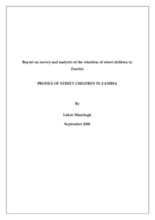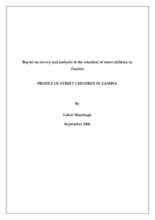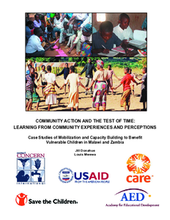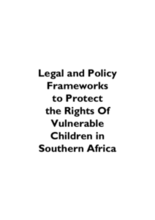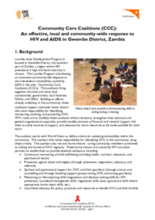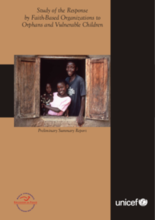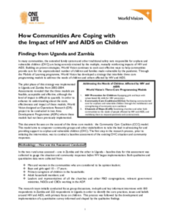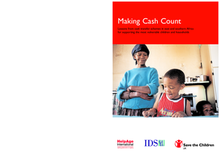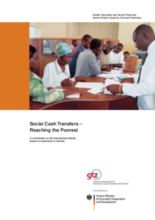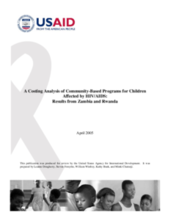childrens_living_arrangement
children_living_without_bio
Displaying 141 - 150 of 158
Profile of street children in Zambia. Emphasis on generating data for policy development. Collected data analyzed at a national level but datasets are available for further analysis in terms of geographical location, gender, or other population sub-sets.
Profiles street children in Zambia. Outlines good practices and priorities for use in the development, coordination, and implementation of a national strategy.
Research on the effectiveness and sustainability of established initiatives for vulnerable children in Zambia and Malawi. Outlines implications for approaches to community mobilization in current programming efforts.
Reviews legal and policy frameworks for the protection of OVC rights in 10 Southern African countries. Includes key concerns and recommendations. Appendix includes country-specific details of National Policies on Orphans and Vulnerable Children and National Plans of Action.
Short document outlining the constitution, role, and work of community care coalitions in Gwembe District, Zambia. Includes lessons learned and recommendations.
A study that looks at the response of faith-based organizations in Kenya, Malawi, Mozambique, Namibia, Swaziland, and Uganda. The report contains statistical information, and details positive care practices to build on, and negative examples to avoid.
Assessment of pilot programs employing World Vision Community Care Coalition model in Uganda and Zambia.
This paper is a comprehensive examination of cash transfers in Africa and their impact on children. Case studies from Ethiopia, Zambia, Mozambique and Lesotho are discussed.
This paper explores the role and process of social cash transfers to reduce poverty and provide social protection. It examines a pilot cash transfer program in Zambia.
A report which analyzes the costs associated with various types of interventions for orphans and vulnerable children, including institutional care, tracing and reintegration, and community-based care.

